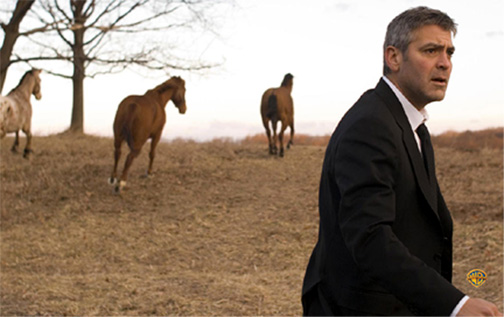The Three Burials of Melquiades Estrada
This is a great film replete with suggestive symbols of grace, redemption, magical thinking, loss and the boundaries that are personal, cultural, and spiritual, not merely geographic. Ironically, when a dreamless, aimless Barry Pepper, who seems already past his prime at 30 becomes a member of the border patrol, he shoots an anonymous Mexican (Jones's blood brother so to speak)--and not even having the sympathy to try to help him--in fact, not having the humanity to even touch him as he lies bleeding to death--is more concerned about his job than another human being. In this case the Mexican to him is merely a type, not really a person. On the other hand Tommy Lee Jones, who sees the person behind the persona, is more concerned about the soul than the outward trappings of language or labels. When he discovers his friend dies at the hands of Pepper, Jones sits in his friend's modest shack just to feel his presence--to commune with his dead friend, as a means of coming to terms with his grief.
Faced with the indifferent locals who would rather save their butts than save their souls, Jones takes it on himself to become the humanizing agent in a mercenary world. Forcing the border guard at gunpoint to accompany his friend to his final burial place, he traverses a bleak land that could be the Eliot's wasteland or the underworld. When he brings his friend home, he finds to his surprise, this beloved Mexican town is not what it is described to be. But as he understands that sometimes the imagination fulfills a purpose that life cannot, dignifies the death of his friend and redeems the humanity of the border guard. This film shows how human relations matter; how the electronic media are mere illusion producing devices; and even an old cowboy's body can find the fountain of youth by sticking to basic principles of human decency and understanding, and even the most direloneliness can be overcome even miles from home.


